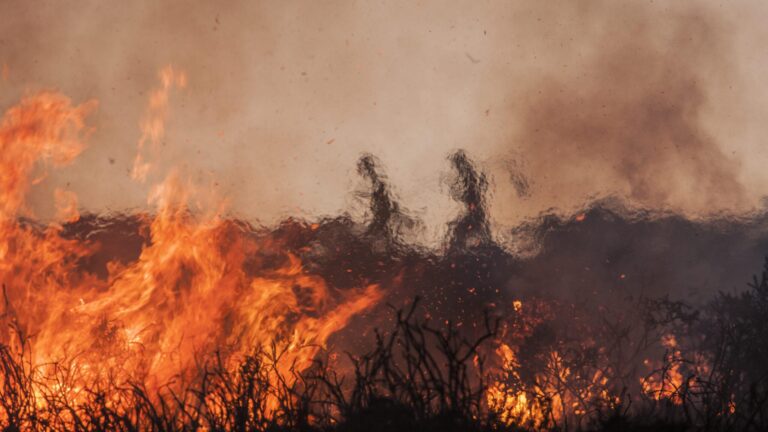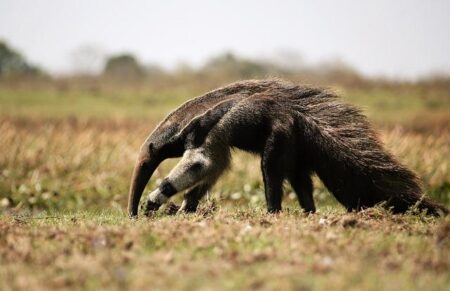Wildfires have rapidly spread across vast regions of Spain and Portugal, engulfing unprecedented areas of land in flames. Authorities are scrambling to contain the blazes as the two countries confront one of the most severe wildfire seasons in recent history. With scorching temperatures and dry conditions fueling the fires, thousands of residents have been forced to evacuate, and emergency services remain stretched thin in their ongoing battle against the relentless infernos. This alarming development has raised concerns over the increasing impact of climate change on the Iberian Peninsula’s ecosystems and communities.
Wildfires Devastate Spain and Portugal Amid Unprecedented Heatwave
Uncontrolled wildfires have swept through vast areas of Spain and Portugal, leaving a trail of destruction amid one of the most intense heatwaves ever recorded in the region. Authorities report that more hectares have burned than in any previous year, overwhelming firefighting efforts and forcing thousands to evacuate. The relentless flames, fanned by strong winds and record-breaking temperatures exceeding 40°C, have destroyed homes, wildlife habitats, and critical infrastructure.
Emergency services in both countries face significant challenges as resources are stretched thin. The affected regions, predominantly rural and forested areas, include:
- Spain: Castilla y LeĂłn, Galicia, and Andalusia
- Portugal: Alentejo and Centro regions
| Country | Estimated Area Burned (hectares) | Evacuated Residents | Active Fires |
|---|---|---|---|
| Spain | 320,000 | 12,000 | 18 |
| Portugal | 270,000 | 7,500 | 14 |
Government officials urge residents to remain vigilant and comply with evacuation orders. Meanwhile, climate experts warn that rising global temperatures and prolonged droughts are increasing the frequency and severity of these wildfires, signaling an urgent need for enhanced forest management and emergency preparedness strategies across the Iberian Peninsula.
Emergency Response Efforts Struggle to Contain Blazes and Protect Communities
The ongoing wildfires have overwhelmed firefighting teams across Spain and Portugal, forcing authorities to declare multiple states of emergency. Efforts to contain the rapidly spreading flames have been hampered by soaring temperatures, strong winds, and rugged terrain, making ground access perilous and aerial water drops critical yet insufficient. Despite the deployment of thousands of firefighters and support from international partners, communities remain at risk, with numerous evacuation orders issued in affected regions.
Key challenges faced by emergency responders include:
- Limited access to remote wildfire hotspots due to damaged infrastructure.
- Insufficient water reserves amid prolonged drought conditions.
- Rapidly changing fire behavior driven by unpredictable weather patterns.
| Region | Firefighters Deployed | Evacuations | Containment % |
|---|---|---|---|
| Andalusia (Spain) | 1,200 | 3,500 | 45% |
| Castilla y LeĂłn (Spain) | 980 | 2,100 | 38% |
| Central Portugal | 1,500 | 4,000 | 42% |
Local authorities continue coordinating with emergency services to bolster response capacity, but the scale of destruction underscores the need for enhanced prevention strategies-ranging from improved forest management to investment in early warning systems-to mitigate the devastating impact of future wildfire seasons.
Experts Call for Enhanced Forest Management and Climate Adaptation Strategies
In response to the alarming surge in wildfire incidents across Spain and Portugal, environmental specialists stress the urgent need for a comprehensive overhaul of current forest management practices. They highlight that traditional methods, primarily focused on fire suppression, have inadvertently exacerbated fuel accumulation in forests. Experts advocate for integrated strategies combining controlled burns, mechanical thinning, and community involvement to reduce ignition sources and maintain ecological balance.
Simultaneously, researchers emphasize the importance of adaptive approaches to address evolving climate conditions. With rising temperatures and prolonged drought periods fueling fire intensity, climate adaptation plans must be embedded into national policies. Below is a concise summary of proposed key actions:
- Early warning systems: Enhanced satellite monitoring and AI prediction models.
- Community engagement: Training locals in rapid response and risk reduction.
- Policy reforms: Strengthened land use regulations that promote biodiversity.
- Investment in research: Focus on fire-resilient species and ecosystems.
| Action | Expected Impact |
|---|---|
| Controlled Burns | Reduce fuel load, prevent large-scale fires |
| AI-Powered Alerts | Faster detection, earlier firefighting response |
| Community Training | Increased local resilience and awareness |
| Climate-Resilient Species | Enhanced ecosystem recovery post-fire |
In Summary
As wildfires continue to engulf vast areas of Spain and Portugal, authorities are urging residents to remain vigilant as firefighting efforts persist amid challenging conditions. With record-breaking land affected, officials emphasize the urgent need for enhanced preventive measures and regional cooperation to mitigate the escalating impact of these devastating blazes. The situation remains fluid, with updates expected as teams work tirelessly to contain the fires and protect communities across the Iberian Peninsula.



